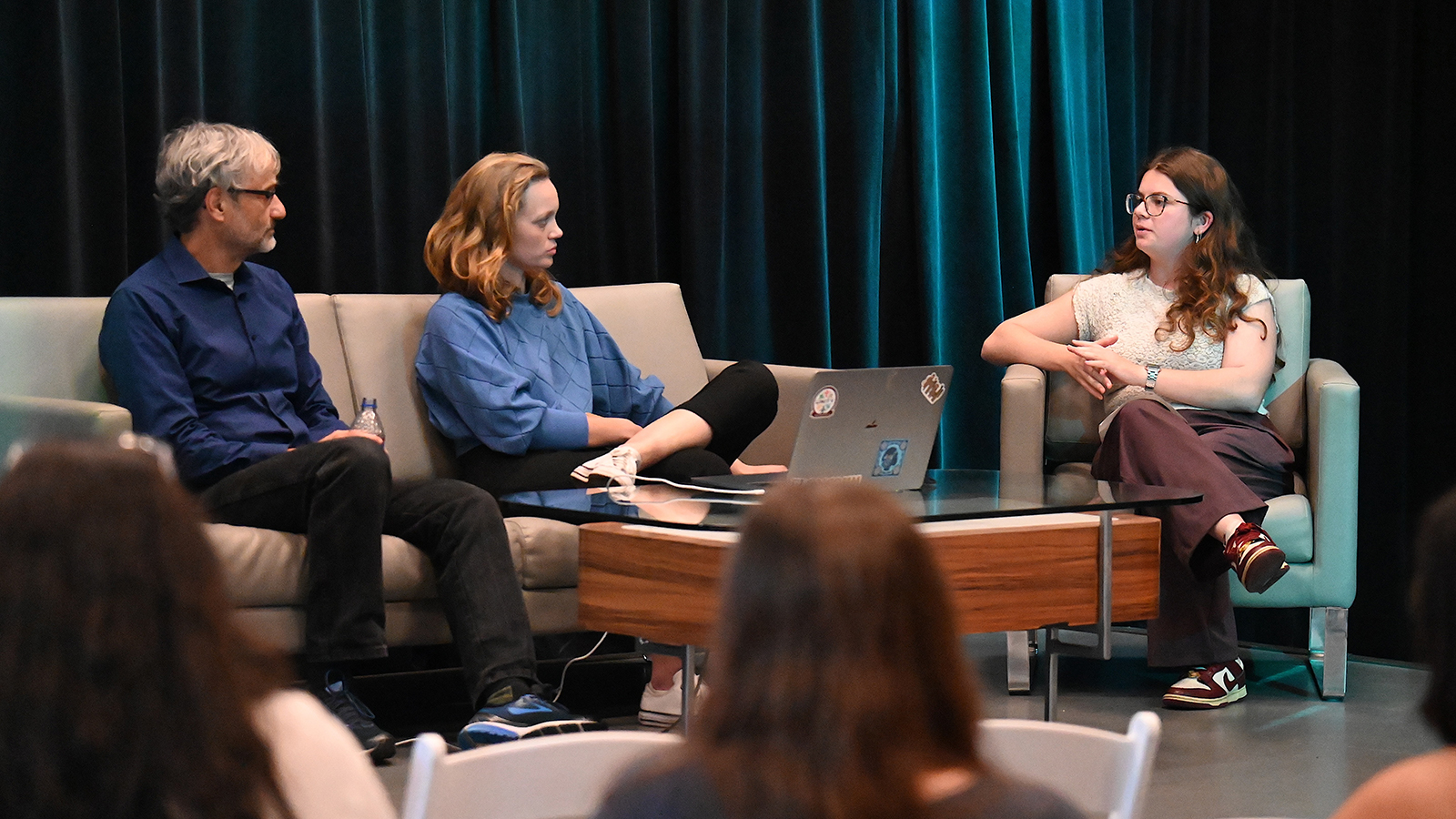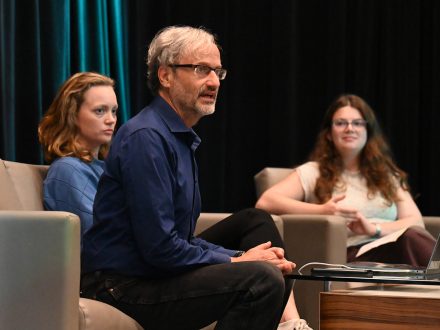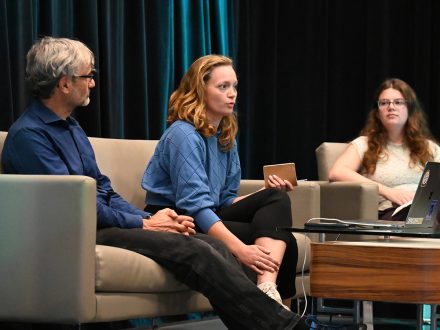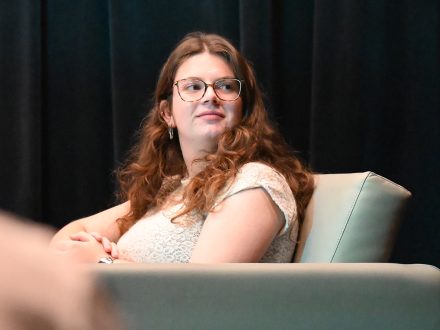As part of Elon’s participation in the Pulitzer Center’s Campus Consortium, Rainforest Investigations Network Fellows Fernanda Wenzel and Andrew Lehren visited campus Sept. 24-26 to discuss the impact of investigative journalism and working in the news industry.

In her welcome introducing Rainforest Investigations Network Fellows Fernanda Wenzel and Andrew Lehren, Assistant Professor Lorraine Ahearn offered the two international journalists the highest of praise.
“These are world-class, muddy boots reporters doing crucial work in rainforests and beyond,” said the journalism professor to a gathering of student, faculty and staff at a Sept. 25 lecture, titled “Protecting the Planet: Investigative Reporters’ Panel.” “Their investigations, supported by the Pulitzer Center, show the power of journalism to address pressing global issues.”

In recent years, the two Pulitzer Center journalists have produced several investigations illustrating how governments and multinationals have destroyed some of the most critical areas of the planet, and what citizens and consumers can do to combat these actions.
Wenzel and Lehren discussed their methods, obstacles and findings as part of an hourlong lecture in McEwen Communications Building’s Jane and Brian Williams Studio. The event was moderated by Elon News Network Executive Director Avery Sloan ’25, who was awarded a Pulitzer Fellowship grant for her a reporting project on incarceration in Denmark.
Photos of the panel are available on the School of Communications’ Flickr account.
A native of Brazil, Wenzel provided attendees with insight into her work in the Amazon, emphasizing the global implications of rainforest destruction, as well as the difficulties she’s encountered reporting from remote locations. Soberingly, Wenzel noted that her sources can often put themselves in harm’s way for talking with her.
“Deforestation driven by the cattle industry and illegal mining are at the forefront of my investigations,” she said. “These industries have strong ties to international markets, like beef from the Amazon being exported to the U.S. and gold ending up in Switzerland.”

Wenzel also underscored the urgency of the climate crisis and its connection to the Amazon. “The Amazon stores a vast amount of carbon. If we continue to destroy it, it will turn into a carbon emitter. What happens in the Amazon is not just a Brazilian problem – it’s a global one.”
A Pulitzer Prize and Emmy-winning journalist for The New York Times and NBC News Investigations, Lehren offered insights from his own global reporting experiences, which includes stories on the deforestation crisis. Lehren explained that his team at NBC News has investigated links between everyday products – like fabrics and electric vehicles – and rainforest destruction.
“We discovered that nickel used in Tesla and Toyota cars may come from protected rainforests in the Philippines,” Lehren said. “Additionally, viscose rayon, a common fabric, is made from trees harvested from tropical regions, contributing to deforestation.”

Lehren emphasized the value and importance of collaboration in journalism, referencing his work with fellow news reporters, including Elon alumnus Anton Delgado ’20. In collaboration with two other reporters, Lehren and Delgado shed light on the illegal trafficking of monkeys for drug testing. Their findings, titled “How the race for a Covid vaccine enriched monkey poachers and endangered macaques,” were published on NBC News’ website and other news platforms.
“We traced the supply chain of poached macaques from Cambodia to U.S. drug labs, revealing a dark side of the pharmaceutical industry,” Lehren said.
As part of their conversation, Wenzel and Lehren also shared tips and tools that have supported their work. Additionally, they expressed hope that their stories might inspire future journalists to also examine critical global issues.
Elon University has a longstanding relationship with the Pulitzer Center, serving as a partner in its Campus Consortium network, an educational initiative that brings Pulitzer Center staff and journalists to Elon’s campus twice a year. Ahearn serves as Elon’s consortium coordinator and help organize Wenzel and Lehren’s visit, which included several classroom lectures.


